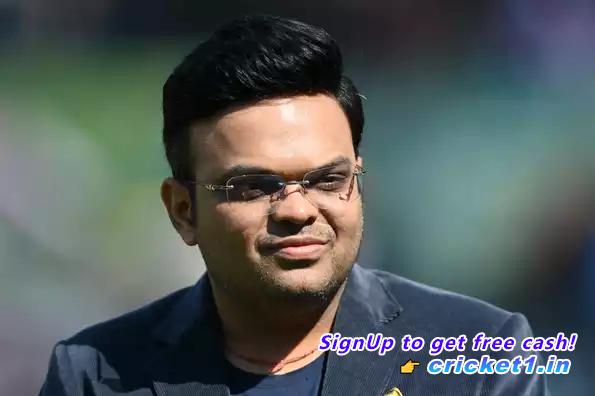
The Board of Control for Cricket in India (BCCI) will not be hosting the ICC Women’s T20 World Cup in India, as confirmed by BCCI Secretary Jay Shah. During an interaction with the Times Group journalists at the Times of India’s Mumbai office on Wednesday, Shah revealed the BCCI’s position on the matter. “They (ICC) have asked us if we would conduct the World Cup. I have categorically said no,” Shah stated.
This decision was influenced by the ongoing disturbances in Bangladesh, which had prompted discussions about relocating the World Cup to India. However, Shah outlined several compelling reasons why India opted out. “We’re in the monsoon season, and on top of that, we will host the women’s ODI World Cup next year. I don’t want to give any kind of signals that I want to hold consecutive World Cups,” Shah explained.
In addition to the Women’s ODI World Cup, the immediate focus for the BCCI is the upcoming home series against Bangladesh, which Shah emphasized as a critical engagement. “We’ve not spoken to them (the Bangladesh authorities). A new government has taken charge there. They might reach out to us, or else I will reach out to them. The Bangladesh series is very important to us.” The series will see India play two Tests and three T20Is, beginning on September 19.
Shah also provided updates on new facilities and academies being developed under the BCCI’s oversight. The High-Performance Centre in Bengaluru, a key project for the BCCI, is nearing completion and is set to be inaugurated next month. “After I took over as the secretary in October of 2019, a lot of time went towards holding the IPL, because of the pandemic. The office was shut for two years. When we got the second term (in 2022), we decided that we have to take this project forward. The foundation was laid in my first term,” Shah noted.
This state-of-the-art facility, while primarily designed for cricketers, will also be accessible to non-cricketers. Shah mentioned this inclusivity to Neeraj Chopra during a recent meeting. The centre will feature three grounds and 100 pitches, including 45 indoor turfs, with a unique aspect being the variety of pitch types available. These pitches replicate conditions found in major stadiums worldwide, such as the Gabba in Brisbane and Kingsmead in Durban. This allows the Indian team to practice under similar conditions before traveling for international assignments.
“We wanted to make the best use of what we got on a platter. In 2008, we got that land, and I don’t know why my predecessors didn’t use it. I am lucky that it was in my destiny to raise the academy. It was unfortunate that we had to run the National Cricket Academy (NCA) from the Chinnaswamy Stadium,” Shah added. He proudly asserted that India is a leader in cricket, both financially and on the field, focusing on continuous development.
.
Furthering cricket’s reach, new academies are being established in all states of the North-East region and Jammu. Shah emphasized that developing the game in these regions is both a right and a responsibility. “It’s simple. They have got full membership and they are part of the country. Opportunity is their right, and it is our responsibility too. Earlier they used to get Rs 5 crore and now they are getting Rs 20 crore to run the game.”
Regarding personnel, Shah confirmed that VVS Laxman, head of the NCA, would continue in his role as his contract is renewed. Addressing the Impact Player rule in the Indian Premier League (IPL), the BCCI is evaluating its pros and cons. “We had a long chat about this in the recent meeting with the franchise owners and our domestic teams. There are positives and negatives to it. The negative is that it affects all-rounders, and the positive side is that it gives an opportunity to an extra Indian player. For me as an administrator, the game is important. Let’s see what feedback we’re getting,” Shah explained.
On whether this rule will continue in the Syed Mushtaq Ali Trophy (SMAT) domestic competition, Shah indicated that a decision would be made within a week. The BCCI also addresses schedule difficulties for domestic tournaments like the Ranji Trophy to ensure fair competition despite weather challenges.
In the IPL, discussions regarding the Big Auction are ongoing, with Shah stating that minority views are as important as majority opinions. “Ultimately the office-bearers (of the BCCI) will decide. Those who have a good side said there is no need for the big auction, and those without a good side wanted it. Continuity is important as shuffling for the growth of the game.”
Additionally, the IPL may expand to 84 games next season, though a final decision is pending. The possibility of adding a sixth Women’s Premier League (WPL) team is also under consideration once a larger talent pool is confirmed.
Shah advocated for a dedicated fund for Test cricket, explaining its necessity for the game’s longest format’s sustainability. “It’s very expensive to host Test matches. If the (ICC) Board approves, we can do that. We’re trying to create a special fund for Test cricket.” He also touched on why India no longer hosts Pink Ball Tests at home, citing that matches tend to end prematurely, affecting spectators and broadcasters adversely.
Questions about the potential for a Women’s World Test Championship were met with Shah saying that it would require more countries to regularly play Test cricket. He pointed out the need for a robust domestic circuit to support international commitments, suggesting that more balanced participation would bolster these efforts.
Shah concluded with insights into coaching roles and player participation in domestic cricket, noting the importance of respecting players’ schedules and well-being to maintain their peak performance at international levels.

